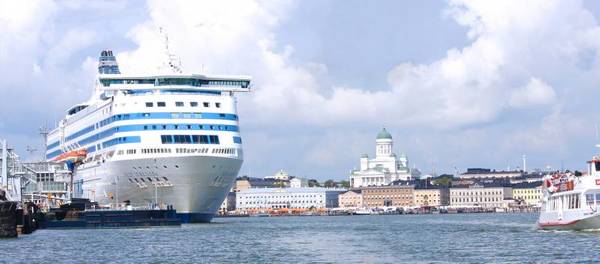
The European Sea Ports Organization (ESPO) and the Federation of European Private Port Companies and Terminals (FEPORT) have jointly agreed that the proposals for an Alternative Fuels Infrastructure Regulation (AFIR) and the FuelEU Maritime Regulation should enable the deployment of OPS where it makes the most sense.
The greening of shipping is a priority for European port stakeholders. This entails addressing emissions from shipping both during navigation and at berth. Onshore power supply (OPS), also known as shore-side electricity, is one of the technologies available to help reduce greenhouse gas emissions at berth.
Both organizations underline the need for an ambitious deployment of OPS as a means to reduce the harmful emissions of ships of nitrogen oxides, sulphur oxides and particulate matter. In this way, port stakeholders can contribute to the much-needed greening of shipping.
Article 9 of the Commission AFIR proposal could result in the entire port needing to have OPS if it receives more than a certain number of port calls by a container or passenger vessel. This would entail significant additional public investment for deploying OPS compared to a more focused approach. These investments are unlikely to be cost-efficient in relation to the emission reductions that they can deliver.
ESPO and FEPORT would instead propose an approach which focuses on OPS deployment per location (such as berths or terminals) in the port, rather than per port. This would ensure that OPS, also known as shore-side electricity, is deployed where it makes the most environmental and economic sense, whilst maintaining the established roles and responsibilities of the various port stakeholders, as defined in Regulation (EU) 2017/352.
To avoid a waste of limited time and public resources, the legal framework on the European level should ensure that OPS is deployed at locations in the port where each installation will deliver maximal emissions reductions per Euro invested.
To optimize the use of OPS as a solution to emissions at berth, ESPO and FEPORT therefore call for the following:
This approach does not assign new responsibilities to stakeholders in the port, and would respect the diverse governance models of European ports.
By calculating the number of port calls based on the relevant locations in the port, it becomes possible for Member States and ports to priorities investments in OPS where it makes the most sense in terms of environmental benefit (GHG reductions). Accordingly, locations in the port that are normally not called at, or that are not intended to be called at by the ship segments required to use OPS at berth, such as underused terminals, can be excluded from the requirement.
ESPO and FEPORT welcome that such an approach has been submitted by different members from different political groups and hopes that this approach will be well reflected in the compromise position that is being established by the rapporteur and shadow rapporteurs in the Transport Committee.
ESPO and FEPORT look forward to supporting policymakers in introducing a common-sense approach to OPS.
The European Sea Ports Organization (ESPO) represents the port authorities, port associations and port administrations of the seaports of 22 Member States of the European Union and Norway at political level. ESPO has also observer members in Albania, Iceland, Israel, Montenegro, Ukraine and the United Kingdom. ESPO is the principal interface between the European seaport authorities and the European institutions. In addition to representing the interests of European ports, ESPO is a knowledge network which brings together professionals from the port sector and national port organizations. ESPO was created in 1993.
FEPORT represents the interests of 1225 private port companies and terminals performing cargo handling and logistics related activities in European seaports, which employ over 390.000 workers. The organization was founded in 1993 to promote the interests of its members, and to maintain constant dialogue with all EU institutional and non-institutional stakeholders. FEPORT is based in Brussels, Belgium.




